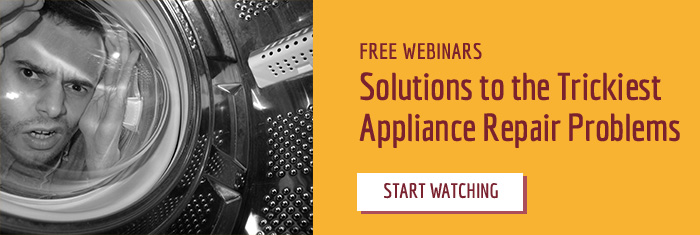Why Using OEM Parts Should be SOP
We've all been there: you're looking up the part that you need for the job, and the price tag about knocks you out of your chair. No way that heating element costs that much to produce! Maybe your concern isn't just for yourself -- you're interested in saving the customer some money.
Despite the sometimes exorbitant prices, there are many good reasons to go with the OEM part over a generic one.
- OEM parts are generally better quality and make for a more reliable repair. You're going to be held accountable for the repair you make, so you want the part you put in to hold up.
- You'll spend more time, but make less. Finding a suitable generic replacement park takes more of your time in research, yet will result in lower revenue, since part of the job quote is based on the markup on the part.
- The specifications aren't always the same. Even if they're only a little off, this can affect the performance and reliability of the appliance, leading to customer complaints.
- If the customer isn't happy paying what it costs for an OEM part, odds are they're not a winning customer anyway. Customers who value a smaller price tag over a more reliable repair generally aren't customers that you want.
I'm not saying there's never a situation where you can use a generic part -- for example, most oven ignitors are perfectly interchangeable. But for the vast majority of cases, it's not good for your business to use non-OEM parts, and neither is it good for the customer in the long run.
-
.png) 4
4






14 Comments
Recommended Comments